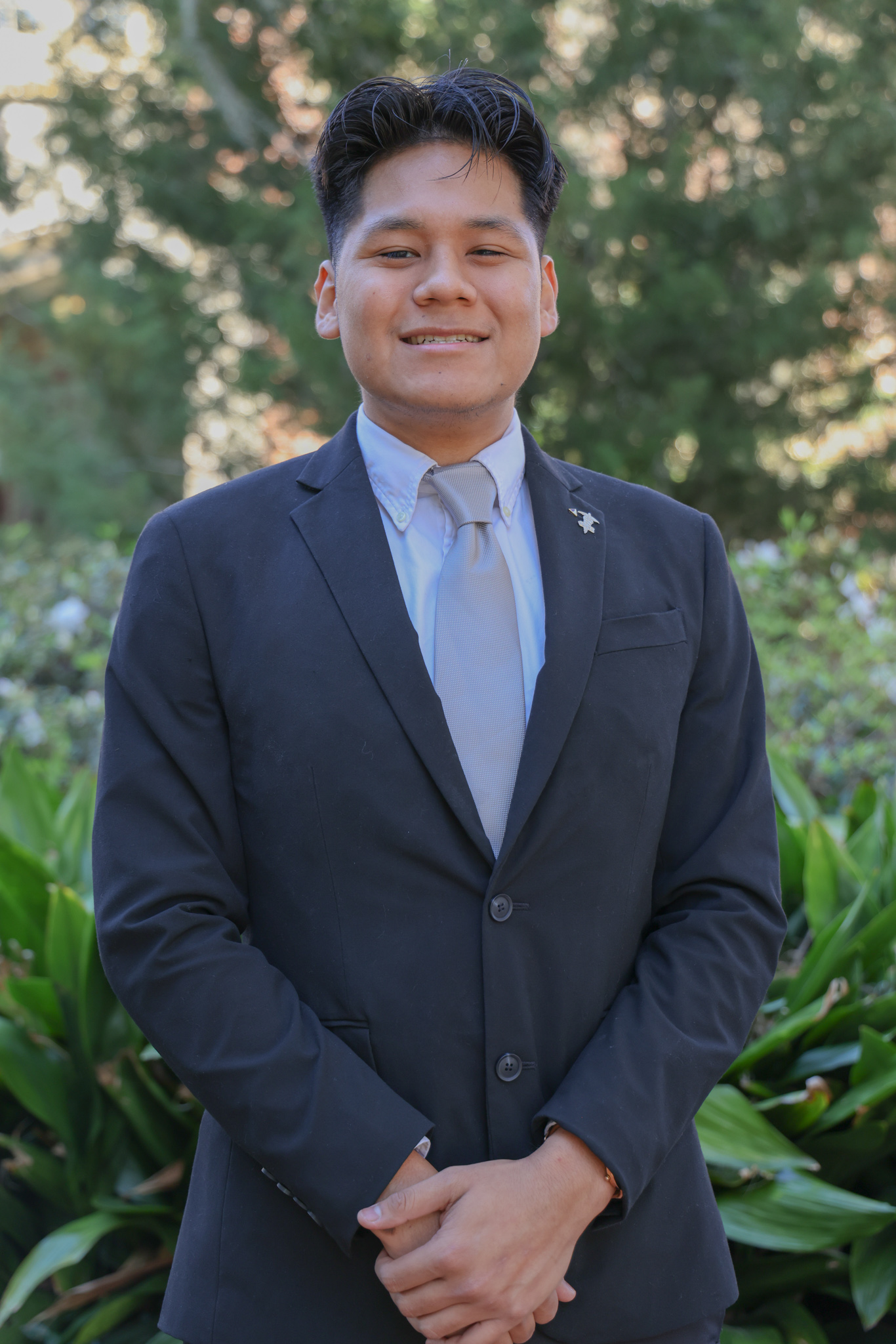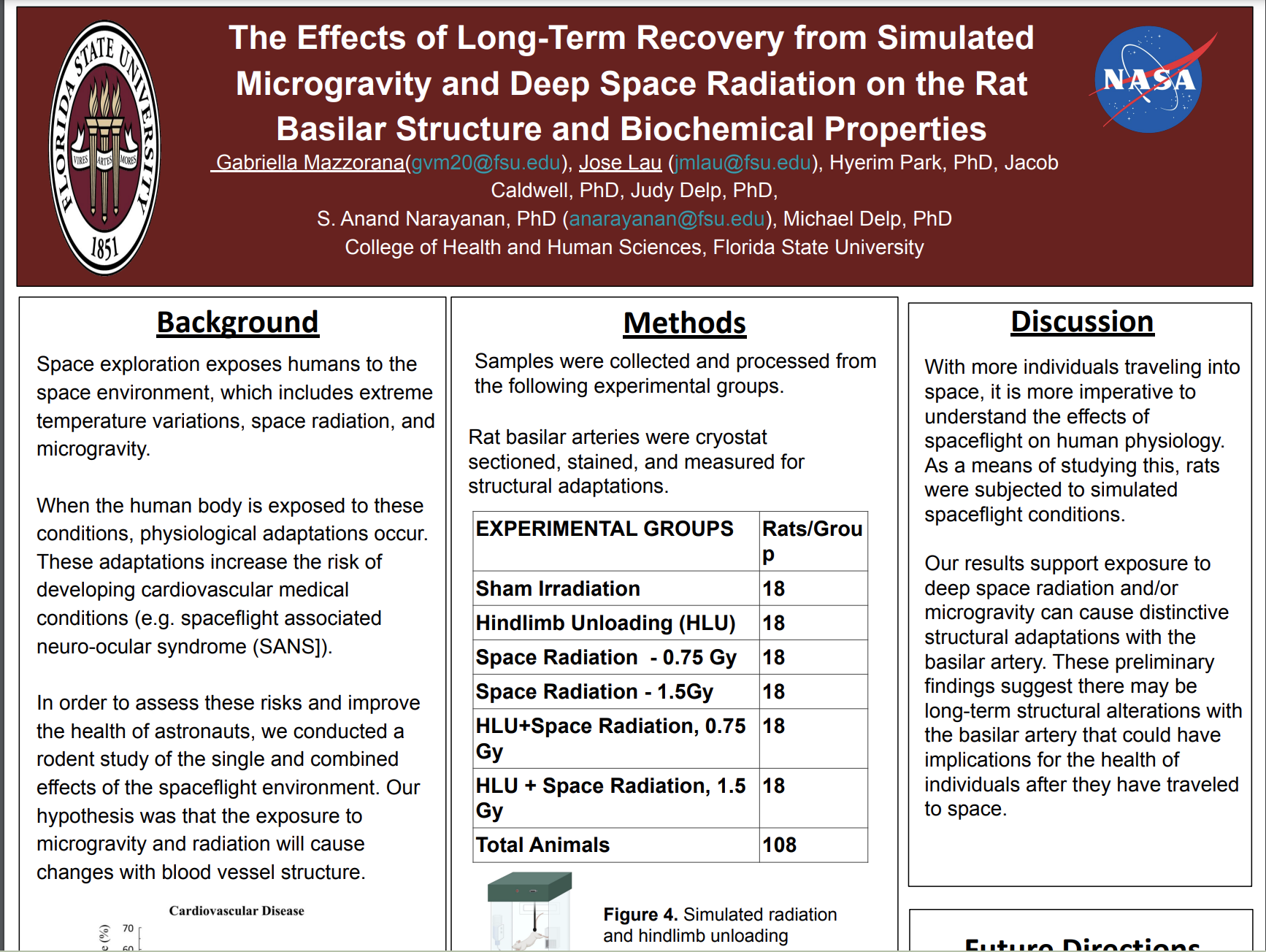Research Symposium
23rd annual Undergraduate Research Symposium, April 6, 2023
Jose Lau Poster Session 2: 1:30 pm - 2:30 pm/ Poster #72

BIO
My name is Jose Lau, and I am a senior at Florida State University studying Exercise Physiology with minors in Biology, Psychology, and Chemistry. I am currently involved in several NASA-funded biomedical research studies under the guidance of my mentor, Dr. Sunny Narayanan. Additionally, I work as a medical assistant at Southern Medical Group, a specialty practice focusing on cardiology and internal medicine.
In my spare time, I volunteer with the Alzheimer's Project, providing comfort, support, and respite care to individuals suffering from memory disorders and their caregivers. I am also an active member of Phi Delta Epsilon, a pre-medical professional fraternity, where I previously served as a social chair.
When I'm not working, volunteering, or conducting research, I enjoy playing basketball with my friends, working out, cooking meals at home, going on runs, taking care of my cat, and being involved in various activities at the most incredible school in the world, Florida State University. As a proud Seminole, I am always excited to represent my school in everything I do, and as always, Go Noles!
The Effects of Long-Term Recovery from Simulated Microgravity and Deep Space Radiation on the Rat Basilar Structure and Biochemical Properties
Authors: Jose Lau, Sunny NarayananStudent Major: Exercise Physiology
Mentor: Sunny Narayanan
Mentor's Department: Biomedical Mentor's College: Florida State University Co-Presenters: Gabriella Mazzorana
Abstract
Human travel into space exposes them to the spaceflight environment, which includes extreme temperature variations, exposure to deep-space radiation, and the effects of weightlessness (e.g. microgravity). Physiological adaptations occur when exposed to these different environmental stimuli; one example includes brain function. Brain function is reliant on adequate blood perfusion supplied by the cardiovascular system. Both the cardiovascular system and the brain have been shown to adapt to extreme conditions such as spaceflight, where astronauts are subjected to environmental factors such as deep-space radiation and microgravity. Some of these changes include cardiovascular adaptations, musculoskeletal deconditioning, and spaceflight-associated neuro-ocular syndrome. To assess these risks and how they may affect the cardiovascular system, we conducted a study of the long-term single and combined effects of deep space radiation and microgravity exposure on rats. Our hypothesis includes studying changes in blood vessel structure and function, as well as biochemical pathway changes (e.g. endothelial nitric oxide synthase [eNOS], oxidative stress) resulting from simulated spaceflight exposure. Biological samples of the rat basilar artery were collected and processed by cryostat sectioning for immunofluorescence protein analysis. The findings from this study will increase our overall knowledge in the field of space medicine and life sciences as well as improve life on Earth through advancements made in medicine and health.
Keywords: NASA, Biomedical, research


